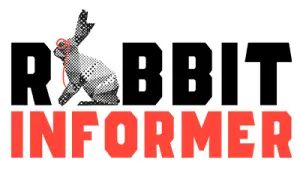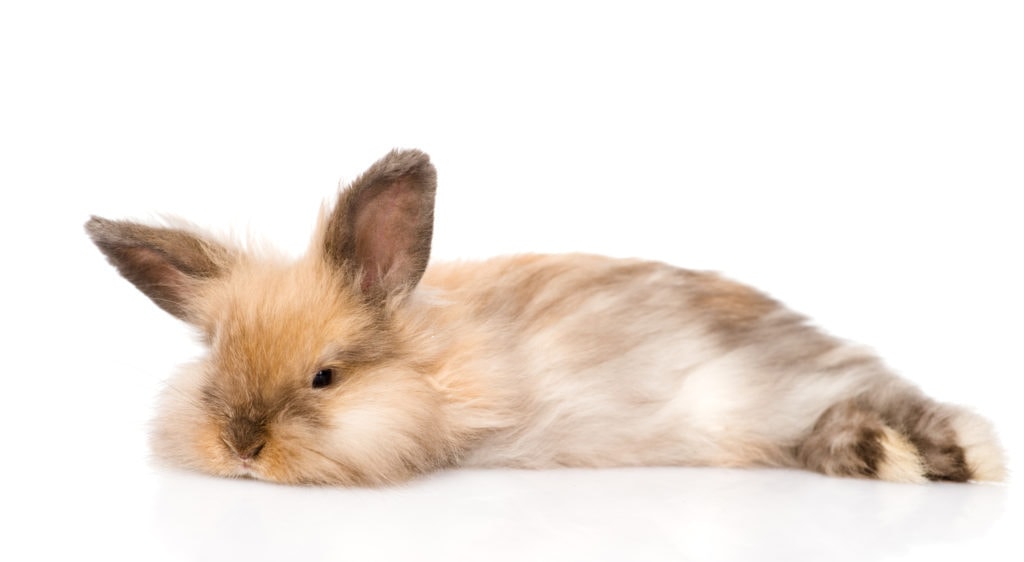
Babies of any species are difficult to take care of. They have specific needs that must be met, and as caretakers, you must be sure that their behavior and health are normal.
Baby rabbits will poop more than adult rabbits. Baby rabbits will poop around 200-300 pellets per day while an adult rabbit poops 150-200 pellets per day. The size of your rabbit does not contribute to the amount or size of the pellets.
A simple way to see if they are healthy is by looking at the frequency at which they poop and what their poop looks like.
Healthy Poops
Healthy rabbit poops should be friable. A poop is friable when it appears firm and stable. But, when you apply gentle pressure or roll them between your fingers, they fall apart. When you do this, they will resemble something like sawdust. On the inside, there will be tons of chewed-up hay. They should also be a light brown color.
However, healthy poop can look different from each other. So, let’s look at different kinds of healthy poop.
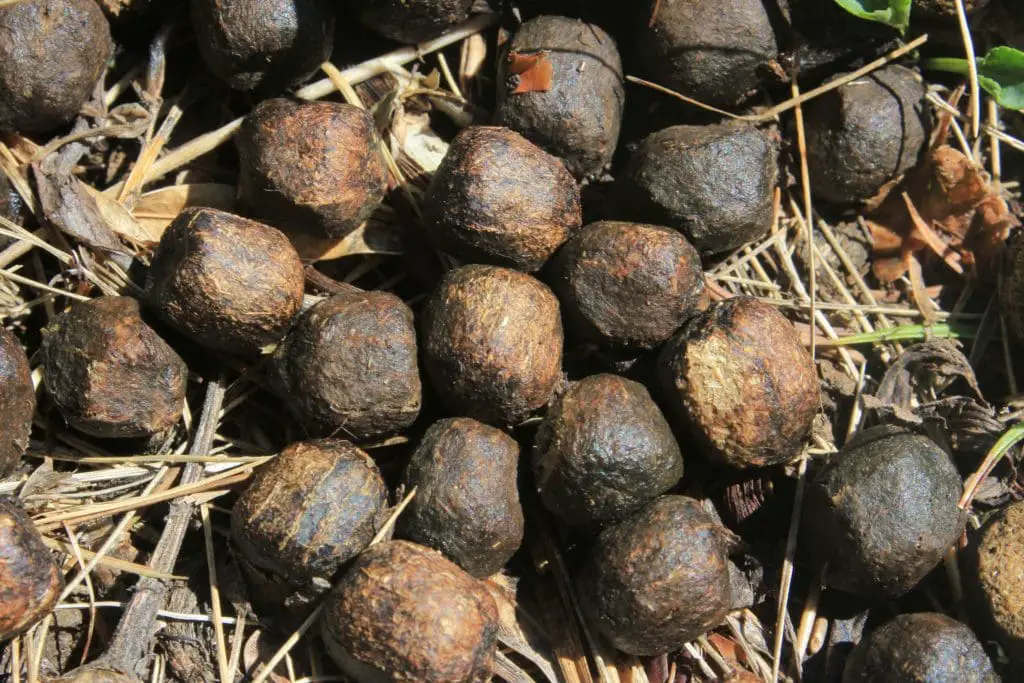
Pellets
These pellets will come in singles, have that light brown color to them, and be friable. These pellets should not give off any odor as well. This will be the most common type of poop that you will see from your rabbit.
Cecotropes
Cecotropes are nutrient-rich poop that rabbits produce and eat to remain healthy. These kinds of poops are completely normal for rabbits.
They will have a clustered structure and will have a glossy look and texture to them. Rabbits will actually eat this kind of poop to make sure that they get enough protein and B-vitamins in their diet. This is normal for adult and baby rabbits.
Linked By Hair
If you find poop that is linked by hair, this is okay. You should feed them more fresh greens and brush them more regularly. Other than that, your rabbit is healthy.
Unhealthy Poops
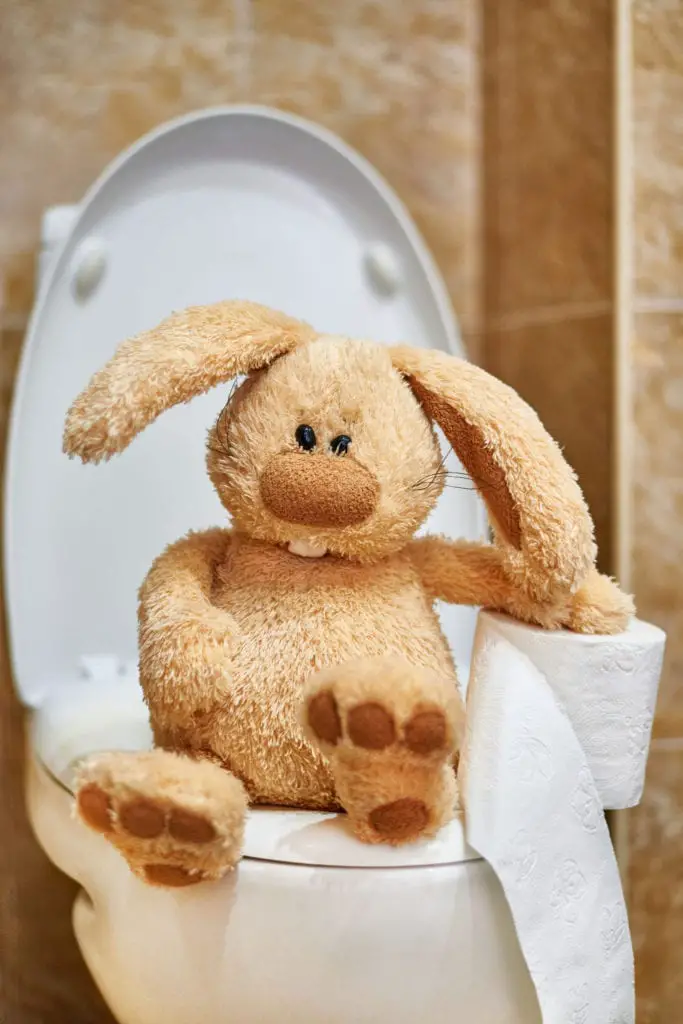
Unhealthy poops occur less frequently than healthy poops. They won’t happen often, but when they do, they need to be addressed to improve your rabbit’s health.
Double Poops
When doubles occur, they will look like two single pellets combined together to make a single pellet. When it happens, it is caused by stress or old age. If it keeps regularly occurring or if they turn into triples, then it’s time to be alarmed and take action.
TIP: If you think your rabbit is struggling to adapt in your new home, please read this article on Helping Your Bunny Adjust. Although there are many different factors that could contribute to your rabbit feeling uneasy in your home, this article is an easy guide that helps you make sure everything is in order.
Egg Shaped Poops
These look like double or triple-sized droppings, but they are not like doubles or triples. They are caused by megacolon. Megacolon is a dilation of the colon and will cause discomfort in the abdominal section, causing the egg-shaped poop. Please take your rabbit to a trusted veterinarian to address this concern.
Small Round Poops
These will be smaller than the normal pellets and caused by stress. They are nothing to worry about if they don’t continue for a couple of days. If they continue to happen after a couple of days, then it is time to take a trip to the vet.
Small Misshaped Poops
They will be like the heading says, small and misshaped. These types of poops happen when your rabbit isn’t eating enough. This is normal for rabbits that have gotten out of surgery since they haven’t been able to eat all that much. But, if they haven’t gone into surgery recently after you find the misshaped poops, this should be a big concern.
Mucous In/Covered Poops
When the mucous is in their poop, this is a big concern for your rabbit’s health. They are caused when parasites or other serious disorders are present in your rabbit. It will look as if the pellets are stuck together by mucous.
Mucous-covered poops are different. They are caused by irritation from the inside of the intestine or after they just got off a course of antibiotics. They will have a very slimy look and feel to them. Contact your veterinarian to determine if a trip to the clinic is needed.
If you are wondering How to Keep Rabbits’ Cage Clean, here are 5 Tips That Work. Something to consider are tasks that you need to do daily versus weekly which this article outlines.
Cecal Dysbiosis
Cecal dysbiosis occurs when rabbits are stressed, ill, or their diet needs to be changed. This poop will be doughy, pasty, and not completely formed. Keep an eye out to see if this continues, and if it does, head over to your vet.
Diarrhea
This is extremely rare to find in rabbits in general. Whenever diarrhea occurs, this should be a huge concern for your rabbit. This usually indicates that there is an infection that is going on and you should address it immediately after you find diarrhea.
What to Do if Your Rabbit Has Unhealthy Poops
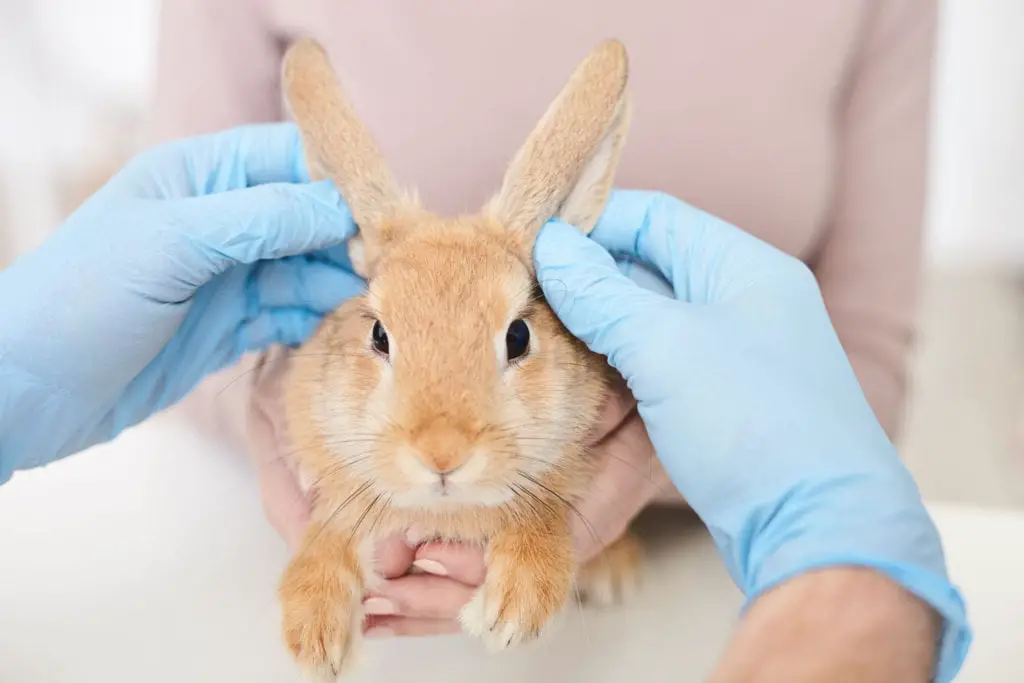
When you find these unhealthy poops, you should either wait to see if the poop continues or go to the vet immediately. The vet will know how to properly address the situation and will get you the help your rabbit needs.
How to Clean Up After Your Rabbit
Some people wonder – Can You Vacuum Rabbit Poop? Check out my article to learn more about that. Your rabbit will be sensitive to chemicals, so getting the right materials to clean your rabbit’s litter box is a must. Everything you need you probably already have at home.
You will need:
- Plain Soap (non antibacterial)
- Bleach (diluted to 1-10% water)
- Vinegar
- Sunshine (to dry it out)
At the end of each month, empty their litter box and clean it in a mixture of water, plain soap, bleach, and vinegar. When done washing, let it dry in the sun. Clean up the pellets from the litter box itself daily. Rabbits are very clean and orderly animals, so be diligent in keeping your rabbit’s litter box and cage clean. It would not be good for your healthy rabbit to become sick from a dirty environment.
Recap
To tie everything together, yes, your baby rabbit will poop more than an adult rabbit. Their poop should be single, round pellets that are friable. When the poop is irregular, take your rabbit to the vet as soon as you can. You should be inspecting their poop daily, whenever you go to pick up after them. Make sure to deep clean your rabbit’s litter box and cage at least once a month.
